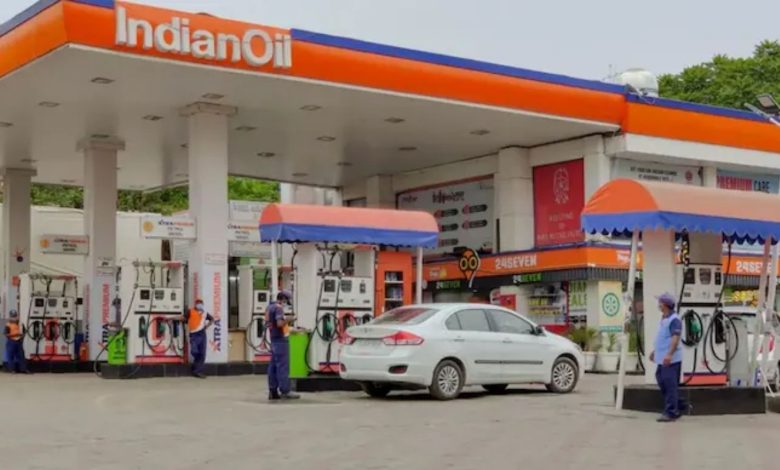
From today, the Delhi petrol diesel ban officially takes effect. Diesel vehicles older than 10 years and petrol vehicles older than 15 years can no longer refuel in Delhi. The move aims to tackle the city’s severe air pollution problem.
The Commission for Air Quality Management (CAQM), working with the Delhi Transport Department, Delhi Police, and MCD, has deployed teams across the city to enforce this rule.
How the Delhi Petrol Diesel Ban Works
The rule is clear. Fuel stations must refuse service to:
- Diesel vehicles older than 10 years
- Petrol and CNG vehicles older than 15 years
If vehicle owners ignore the rule, enforcement teams can issue fines or seize the vehicle on the spot. This policy directly aligns with the Supreme Court’s 2018 decision and the National Green Tribunal’s 2014 ruling, both designed to reduce air pollution from aging vehicles.
350 Petrol Stations Under Tight Surveillance
The enforcement plan is robust:
- 100 petrol stations, with the highest concentration of End of Life (EoL) vehicles, are monitored by Delhi Police.
- 59 stations are under the control of the Transport Department.
- 91 high-risk stations are jointly supervised by both the Transport Department and Police teams.
- The remaining 100 stations are managed by MCD officials.
This extensive surveillance ensures compliance with the Delhi petrol diesel ban, preventing unauthorized refueling.
Technology Behind the Ban: ANPR Systems in Action
To strengthen enforcement, Automated Number Plate Recognition (ANPR) technology is deployed across stations. These systems scan license plates to automatically detect non-compliant vehicles. The Delhi Transport Infrastructure Development Corporation (DTIDC) is responsible for maintaining these systems.
This smart technology allows real-time tracking of rule violations and immediate action.
Massive Scale: Over 60 Lakh Old Vehicles Identified
According to the VAHAAN database, Delhi houses approximately 62 lakh EoL vehicles, including:
- 41 lakh two-wheelers
- 18 lakh four-wheelers
Surrounding NCR regions in Haryana, Uttar Pradesh, and Rajasthan contribute an additional 46 lakh old vehicles, intensifying the challenge of regional air pollution.
Strict SOPs for Petrol Stations: Fines for Non-Compliance
Authorities have set up an extensive monitoring system at 350 fuel stations. Their deployment strategy is highly structured:
- 100 stations, with the highest number of End of Life (EoL) vehicles, are monitored by Delhi Police.
- 59 stations are under the watch of the Transport Department.
- 91 sensitive stations receive joint monitoring by both teams.
- The remaining 100 stations fall under MCD’s supervision.
This approach ensures comprehensive coverage and minimizes any loopholes.
Tech-Driven Enforcement: ANPR Cameras in Action
To boost efficiency, Automated Number Plate Recognition (ANPR) cameras scan every vehicle that arrives at fuel stations. If a vehicle exceeds the age limit, the system immediately flags it.
The Delhi Transport Infrastructure Development Corporation (DTIDC) manages and maintains this technology, guaranteeing accurate and real-time detection.
The Scale of the Problem: 62 Lakh Old Vehicles in Delhi
Data from the VAHAAN database reveals the shocking scale of Delhi’s old vehicle problem:
- 41 lakh two-wheelers
- 18 lakh four-wheelers
On top of that, neighboring NCR states like Haryana, Uttar Pradesh, and Rajasthan add another 46 lakh EoL vehicles. This widespread issue highlights why the Delhi petrol diesel ban is urgently needed.
Clear SOPs for Petrol Stations: Non-Compliance Comes at a Cost
The Delhi government has left no room for confusion. Fuel stations must follow these strict rules:
- Display notices saying: “Fuel will not be dispensed to End of Life Vehicles – i.e. 15 years old Petrol & CNG and 10 years old Diesel from 01.07.2025.”
- Log every attempt where fuel is refused.
- Train staff to handle customer queries and enforce the rule correctly.
- Submit weekly compliance reports to CAQM and the Ministry of Petroleum and Natural Gas.
If a petrol station ignores these procedures, it faces penalties under Section 192 of the Motor Vehicles Act, 1988.
Why This Ban Matters for Delhi’s Air Quality
The Delhi petrol diesel ban is a crucial step towards improving air quality in one of the most polluted cities in the world. Vehicular emissions from older engines significantly contribute to PM2.5 and PM10 levels, causing respiratory diseases and worsening climate conditions.
This bold move aligns with global efforts to phase out outdated, polluting vehicles in favor of cleaner mobility solutions.
Delhi Leads the Way: Will Other Cities Follow?
This firm step not only sets an example for other Indian cities but also demonstrates Delhi’s commitment to fighting climate change and protecting public health. The Delhi petrol diesel ban shows that strong, tech-driven policies can bring about real change.
You May Also Like:
Delhi’s Odd-Even Rule: Does It Really Work?
Source:
Read the full report on India Today




